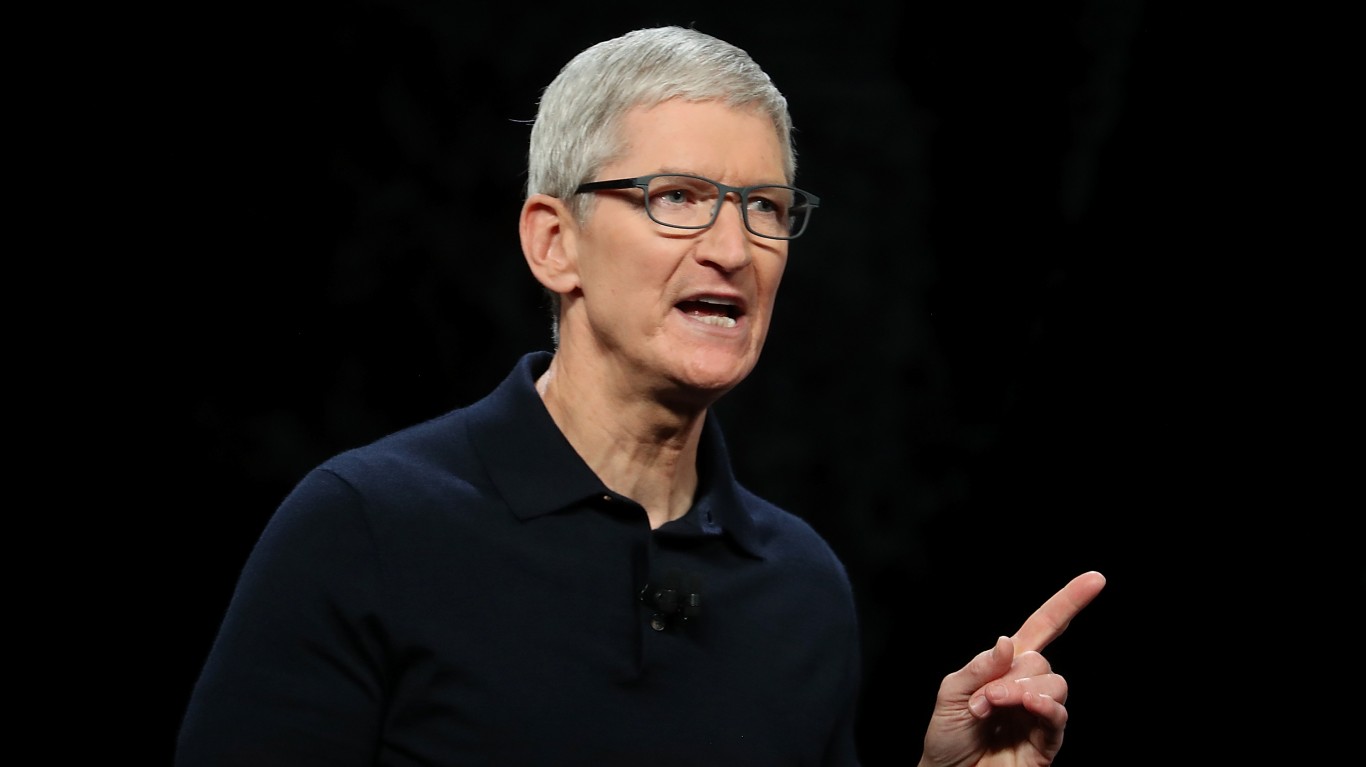Technology
What's Up With Apple: Drop in Global Ranking, More Demands for Remote Work and More

Published:

Global smartphone shipments increased by 12% year over year in the second quarter, and Apple Inc. (NASDAQ: AAPL) fell from second place to third, behind perennial leader Samsung and China-based Xiaomi.
The rankings were announced Thursday by industry research firm Canalys and may change when final data is tabulated. Samsung shipments rose by 15% compared to the second quarter of last year, and the Korean firm captured 19% of the global smartphone market. Number 2 Xiaomi saw shipments rise 85% year over year and claimed 17% of the market. Apple’s total share rose by 1% to 14% of the global market.
[in-text-ad]
Canalys Research Manager Ben Stanton commented:
Xiaomi is growing its overseas business rapidly. For example, its shipments increased more than 300% in Latin America, 150% Africa and 50% in Western Europe. … [Xiaomi’s business model] is still largely skewed toward the mass market, however, and compared with Samsung and Apple, its average selling price is around 40% and 75% cheaper respectively. … All vendors are fighting hard to secure component supply amid global shortages, but Xiaomi already has its sights set on the next prize: displacing Samsung to become the world’s largest vendor.
Apple already has said that it will adopt a new hybrid work-from-home model beginning in September that requires employees to spend three days a week in their offices. To say that some employees are upset by the requirement is something of an understatement.
According to The Verge, in an employee-designed survey sent out early in June, “nearly 90 percent of [1,749] respondents said they ‘strongly agree’ with the statement ‘location-flexible working options are a very important issue to me.'” More than a third of respondents (36.7%) of 1,735 respondents said they might have to leave the company as a result of Apple’s inflexibility.
MacRumors reported Thursday that Apple’s primary chip supplier, Taiwan Semiconductor Manufacturing, aka, TSMC, confirmed that its new Arizona fab will begin mass production in 2024. The $12 billion facility is already under construction and will be TSMC’s second U.S. fab.
The new facility will make 5-nanometer (nm) semiconductors, comparable to the A14 Bionic chip that Apple uses in the iPhone 12. Besides Apple, other likely customers for TSMC’s U.S.-made chips are Qualcomm and Intel.
Finally, what would a day at Apple be without another legal challenge? In Spain, the government’s consumer protection has sent the company a letter seeking compensation for Spanish consumers who have complained that Apple is slowing down certain iPhone models.
Recent updates (beginning with 14.5) to Apple’s iOS have allegedly slowed down iPhones 12, 11, XS and 8. Apple’s office in Spain has not yet responded to the letter, according to the report at 9to5Mac.
Thank you for reading! Have some feedback for us?
Contact the 24/7 Wall St. editorial team.